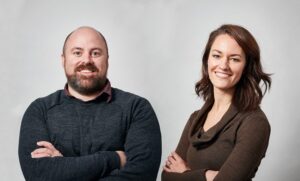I once had an editor tell me not to use the word “sustainability” anywhere in an article. It was, in fact, an article all about sustainability, but her point was that the term alone wasn’t specific enough. Instead of relying on a catch-all term, she wanted me to write about actual activities promoting sustainability, such as water conservation or waste reduction. Get the functionality of an action right, and no one will have to be told it’s sustainable; it will make sense on its merit.
Covering AI is starting to feel similar. Identifying something as, simply, AI doesn’t pack enough descriptive punch to tell HR leaders what exactly the platform can do for them.
Recently, I went to gorgeous Scottsdale to attend i4cp’s Next Practices Now event. Elliott Masie, founder of the MASIE Learning Foundation, which focuses on how organizations can support learning and knowledge within the workforce, warned the audience to watch out for “AI washing.”
He said that HR tech buyers should turn a watchful eye to any sales pitch that is based purely on the claim that AI is a feature. “One of the most dangerous things is to fall in love with AI,” he said. He predicts that AI will become integrated into nearly every tech platform (if it hasn’t already), so the solution should stand on its own two feet, regardless of AI as a buzzword.
It’s a healthy reminder that functionality can and should still be defined beyond the AI moniker.
HR tech in the news
Eric Sydell, former head of AI practices at Modern Hire (acquired by Hirevue last year), has launched a new venture. Vero AI is a science-based platform designed to help global enterprises maximize the potential of AI technologies while mitigating risks. This initiative aims to earn the business of HR tech buyers by enhancing returns on their AI investments and educating them about the potential risks associated with these emerging tools, such as bias, privacy breaches and legal ramifications.

Cloverleaf co-founders Darrin Murriner and Kirsten Moorefield
Cloverleaf, which offers automated coaching technology for individuals and teams, announced that it has gained an additional $7.3 million in funding through a Series A extension round. Advantage Capital led the investment, joined by a handful of other funders. By leveraging psychology data from behavioral assessments, Cloverleaf provides personalized coaching tips within collaboration tools employees use daily, such as Slack and Teams.
Borderless AI shared news of a $27 million seed funding round led by Susquehanna and Aglaé Ventures, the venture arm of Bernard Arnault (chairman and CEO of luxury goods company LVMH). Borderless AI provides Employer of Record services by using AI to automate hiring processes in any country within minutes. Borderless AI is designed to alleviate challenges associated with geographical barriers and scaling a global business.
More from HRE
Rather than design new “future of work” roles that don’t yet exist, the best HR professionals embrace current conditions and plan for what is to come. Paaras Parker, the chief human resources officer at HR software platform Paycor, told HRE that as people roles become more specialized in this way, three key areas emerge as focal points for HR teams.
A need for workers with essential tech skills will drive organizations to develop their current employees, particularly in critical areas. Identifying the skills required to achieve organizational goals, assessing existing skills and strategizing to bridge this gap will be vital. Fortunately, these sought-after skills can often be developed through upskilling programs.
Kevin Wheeler and Bas van de Haterd are authors of a highly anticipated book geared toward HR professionals involved in the hiring process. In this sneak peek of Talent Acquisition Excellence: Using Digital Capabilities and Analytics to Improve Recruitment, they share how to capitalize on technology and digital capabilities for enterprise recruitment efforts.

